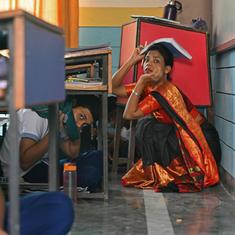The weekend reads
- In the Indian Express, Hamid Dabolkar writes on why appointing religious men as ministers in Madhya Pradesh is a worrying sign in a secular country.
- Feroz Ali and Roshan John in The Hindu saythat patents for trivial improvements on drugs, though statutorily barred, are routinely granted.
- The tough words that accompanied last year’s Dokalam standoff are no longer heard in the halls of power in New Delhi, says Mihir Sharma in Mint.
- By innovating like Nasscom did, India’s health services sector will be able to tap lucrative markets, writes Rajkamal Rao in Business Line.
- Rene Ebersole in National Geographic follows the illegal trading market for Humming Birds that are turned into lucky charms.
- In Racked, Kyle Chyka explains how everything today has become a product of a computer algorithm, endangering originality.
- To hug or not to hug? Emily Meg Weinstein considers the complexities of meeting and greeting in this #MeToo moment.
- Josephine Sittenfeld in New York Times on how finding her ’90s-era things in her bedroom led to a better understanding of the person she was.
- This year marks the 30th anniversary of the battle of Cuito Cuanavale, when Cubans joined Angolans to defeat the South African apartheid regime. George Tomames in Jacobin explains the significance of these events.
- Historically, immigrants were given special rights to take Native lands. If Trump says the US is no longer a nation of immigrants, that has consequences, says Timothy Snyder in the Guardian.










